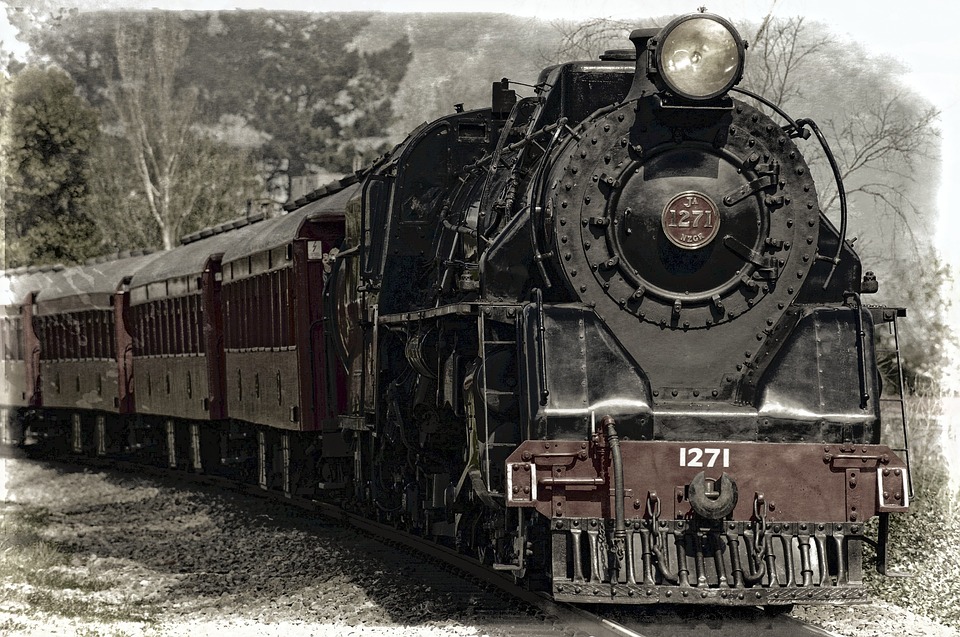 Late Modern English (c. 1800 – Present)
Late Modern English (c. 1800 – Present)
The English language underwent more huge changes after 1800. The Early Modern period came to an end as new influences emerged.
Although the pronunciation and grammar of Early Modern English continued into the late modern age, the vocabulary of English grew considerably, leading to the creation of Late Modern English.
The main changes in vocabulary during the Late Modern period were due to the industrial revolution, scientific advancements and colonialism.
The Expansion of the British Empire
More new words seeped into the English language after the year 1700. This is because the English language started to spread all around the world due to the development of Britain’s new colonies.
As the British Empire grew, English words were absorbed into the languages of the colonised countries, spreading the English language far and wide.
At the same time, the English language expanded to accommodate many new foreign words within its vocabulary. For example, Late Modern English contains many words borrowed from Hindi and other Indian languages, such as ‘pajamas’, ‘bungalow’ and ‘shampoo’.
In fact, English contains some words from most other languages: from the Finnish ‘sauna’, German ‘kindergarten’ and Japanese ‘tycoon’, to the Russian ‘balaclava’, Sanskrit ‘jungle’, Swahili ‘jumbo’ and West African ‘banana‘.
Although Late Modern English includes words from many languages, the largest number of words come from French and Latin.
Maritime Language
In connection with Britain’s colonial explorations, the words and phrases of sailors (‘seaspeak’) were adopted into the mainstream vocabulary of Late Modern English.
Many English phrases come from maritime roots, including: ‘three sheets to the wind’, ‘close quarters’, ‘the bitter end’, ‘cut and run’, ‘hand over fist, ‘fathom out, ‘in the offing, ‘taken aback’, ‘high and dry’ and of course, ‘walk the plank’.
The Industrial Revolution
Until the early 18th century, people lived off the land and most people worked in agriculture. However, large developments in technology between c. 1760 and 1830 took Britain into an industrial revolution.
The industrial revolution had a strong impact on the English language with many new words coined from these technological advancements. New words were invented to name new industrial techniques, machinery, products and technology.
Some words that entered the language around this time include: electricity, camera, telegraph, pulley, train, engine, reservoir and combustion.
New words also came about by using old words together in new ways to create a new meaning. For example: typewriter, horsepower, aeroplane and railway all arrived in Late Modern English.
The Advancement of Science
In the 17th and 18th centuries, new scientific discoveries meant that more new words had to be invented to describe the new findings; many of the words of this industrial age were borrowed from Latin and Greek.
Words borrowed from French, Latin or Spanish may have been already borrowed at a previous time in English language history, causing a new meaning and/or pronunciation to develop.
For example, the word ‘chef’ and the word ‘chief’ are both borrowed from French. ‘Chef’ was borrowed by Late Modern English, whereas ‘chief’ came into the language during the time of Middle English. This is why the same root has resulted in two distinct words with different meanings in English today.
![1. Marie Curie by Unknown, Tekniska museet [CC BY 2.0 (https://creativecommons.org/licenses/by/2.0)], via Wikimedia Commons Late Modern English - Marie Curie - medical advancement](http://www.myenglishlanguage.com/wp-content/uploads/2018/06/marie-curie.jpg)
1. Marie Curie, physicist and chemist who conducted pioneering research on radioactivity – image source
Greek and Latin Roots
Many of the new words that came into the English language during the scientific revolution have a Latin or Greek root. For example: ‘oxygen’, ‘nuclear’ and ‘vaccine’.
New words also came from the field of medicine, such as ‘ambulance’, which has a French root but was originally derived from Latin.
We can see the influence of classical languages on new vocabulary today used in the world of science and computers, including ‘byte’, ‘micro’ and ‘cyber’.
The Military and Language
Wartime has always introduced many new words into the English vocabulary.
In the Late Modern age, the First World War and Second World War added many new words and slang phrases, which were used originally by soldiers and came straight from the trenches.
The two World Wars introduced the words: ‘booby trap’, ‘basket case’, ‘to be in a flap’, ‘zigzag’, ‘souvenir’, ‘browned off’, ‘gubbins’, ‘flak’, ‘fed up’, ‘dud’, ‘lousy’, ‘crummy’, ‘cushy’, ‘no man’s land’, ‘dekko’ and ‘Blighty’ (both these last words are derived from Hindi).
Late Modern English also adopted other military-derived words that we use today, including: ‘ambush’, ‘spearhead’, ‘melee’, ‘radar’, ‘siege’, ‘camouflage’ and ‘sortie’, along with the aeronautical-related terms ‘nose dive’ and ‘landing strip’.
Share your thoughts on late modern English
Do you think the current English language will evolve again into another age of English? What will this Post-Late Modern English sound like?
Do you know any other English words that have a military root? Or a maritime root?
How you think spellings and pronunciation will change in the future?
Let us know your thoughts about language evolution in the comments.
Attributions
- Marie Curie by Unknown, Tekniska museet [CC BY 2.0], via Wikimedia Commons




This is a good series, all in all. That said, this particular page would be even better if it included the following:
* Words that William Whewell coined (e.g. “scientist”).
* The influence of American English.
* How modern communications technology (i.e. radio, movies, TV, email, the World Wide Web, and social media) have influenced the English language.
I really think that there could “BE”properly an additional of new words it could be added or borrowed into English language still. there are many accent because the world would never be satisfied.